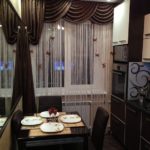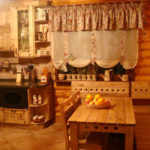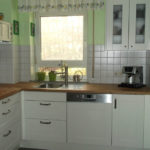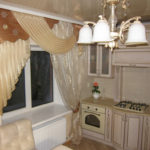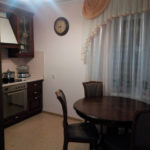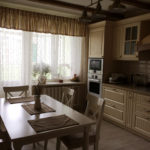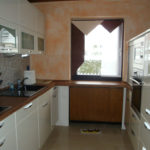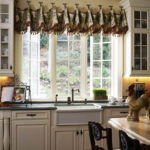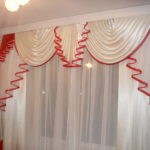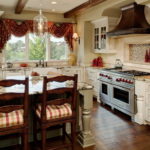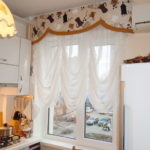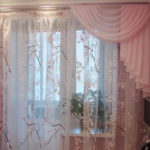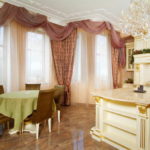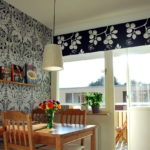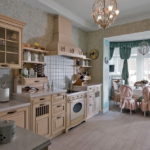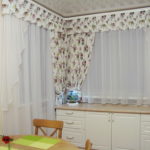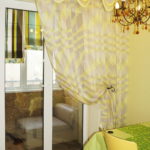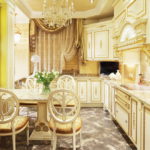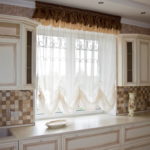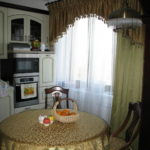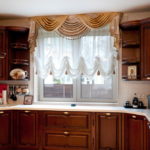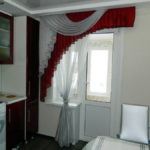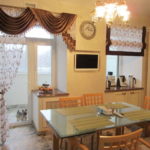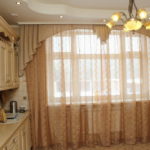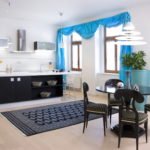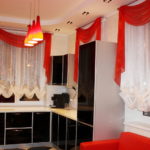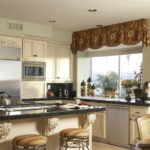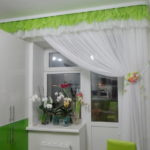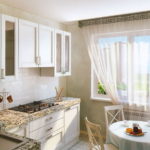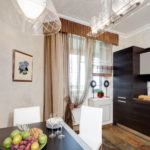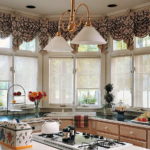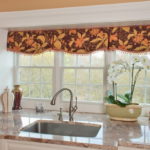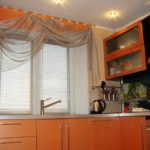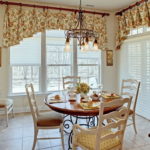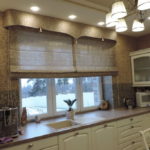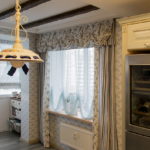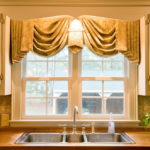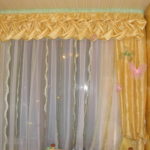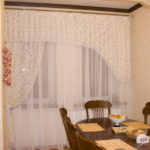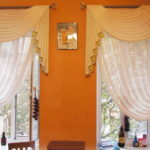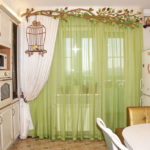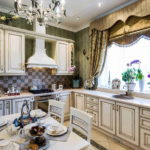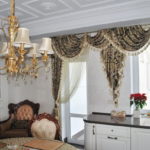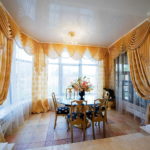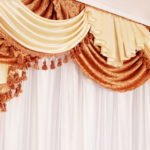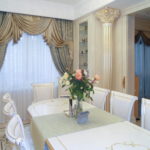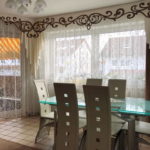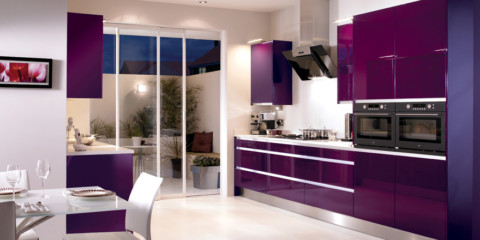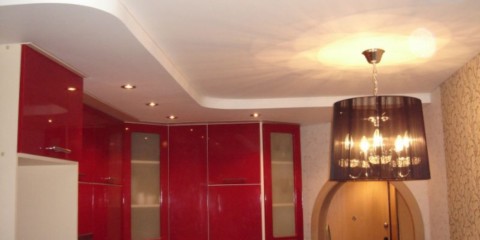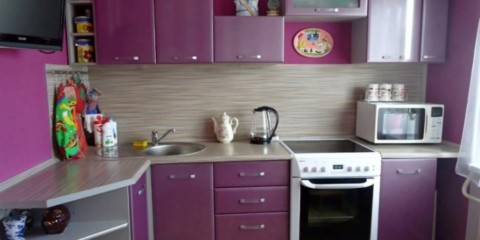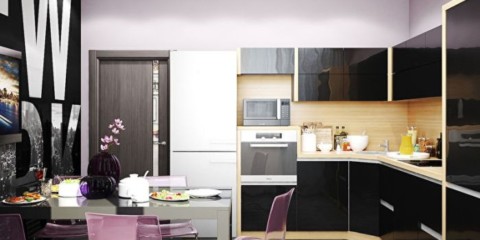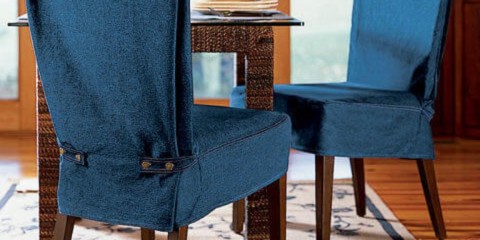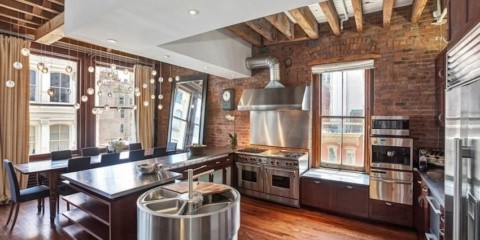 Kitchen
Elite kitchen design. What is he like?
Kitchen
Elite kitchen design. What is he like?
For each person making repairs in the kitchen, the issue of choosing the design of a window opening will be relevant. The most common option is a pelmet.
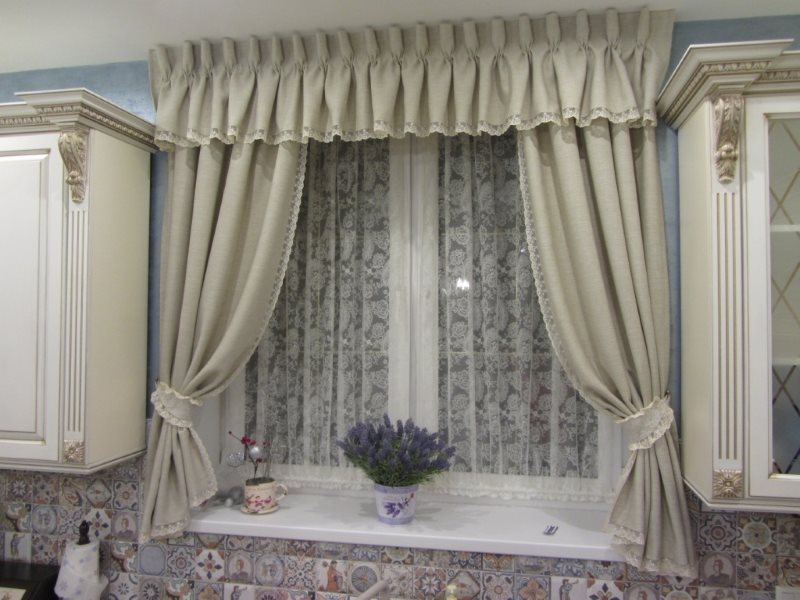
Lambrequin performs a decorative role, hiding the cornice and curtain fasteners
Lambrequins began their journey in the mid 20s of the last century in the era of the prosperity of Art Nouveau and Classicism. Now such an element of the interior will perfectly complement the interior in any style and direction, from the loft to the elaborate art deco.
What is a pelmet and how does it fit with tulle
Content
Lambrequin is the design of the upper part of the window opening, a way to close the cornice and the space from the window to the ceiling. He, in addition to the decorative function, performs a protective function, and it consists in protecting the premises from drafts.
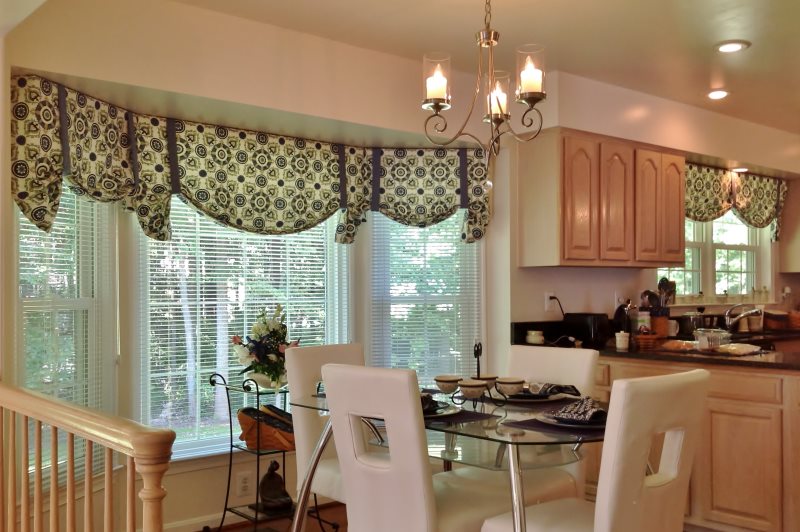
Lambrequin in fact is a shortened curtain with or without drapery, located horizontally
Types of Lambrequins
They come in several forms - hard (frame), soft, combined, openwork, puff.
The use of a frame type is perfect for masking the space from the ceiling to the window and the cornice itself. The fabric is duplicated by special seals and makes it possible to create unique lines and shapes. Fabrics on such lambrequins, as a rule, choose dense, non-transparent. For example, taffeta, curtain fabric, dense organza, satin, satin.
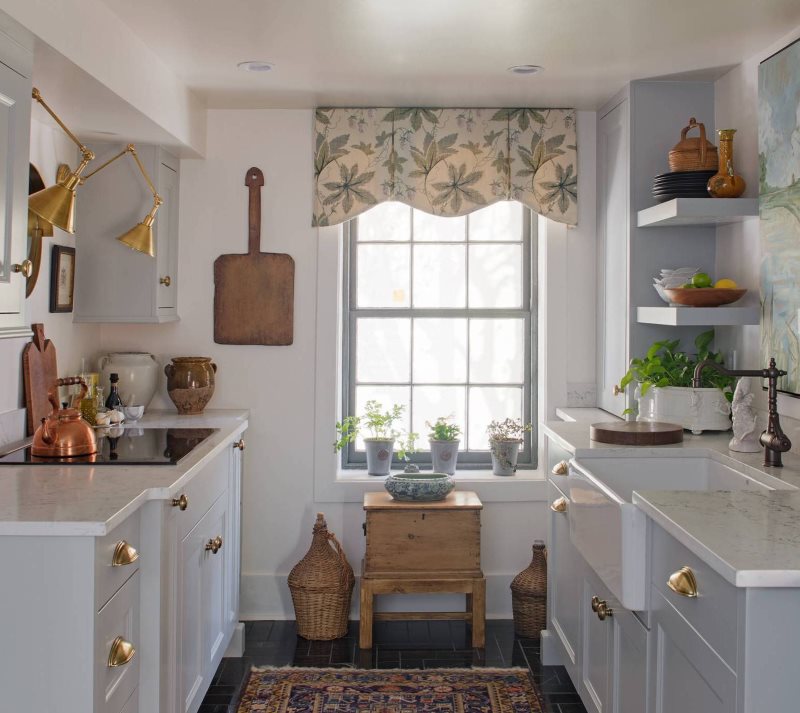
With the help of a hard lambrequin it is easy to hide all the flaws of the mount and the upper wall
For a classic style, such a lambrequin will look good in combination with delicate gas or mesh tulles.
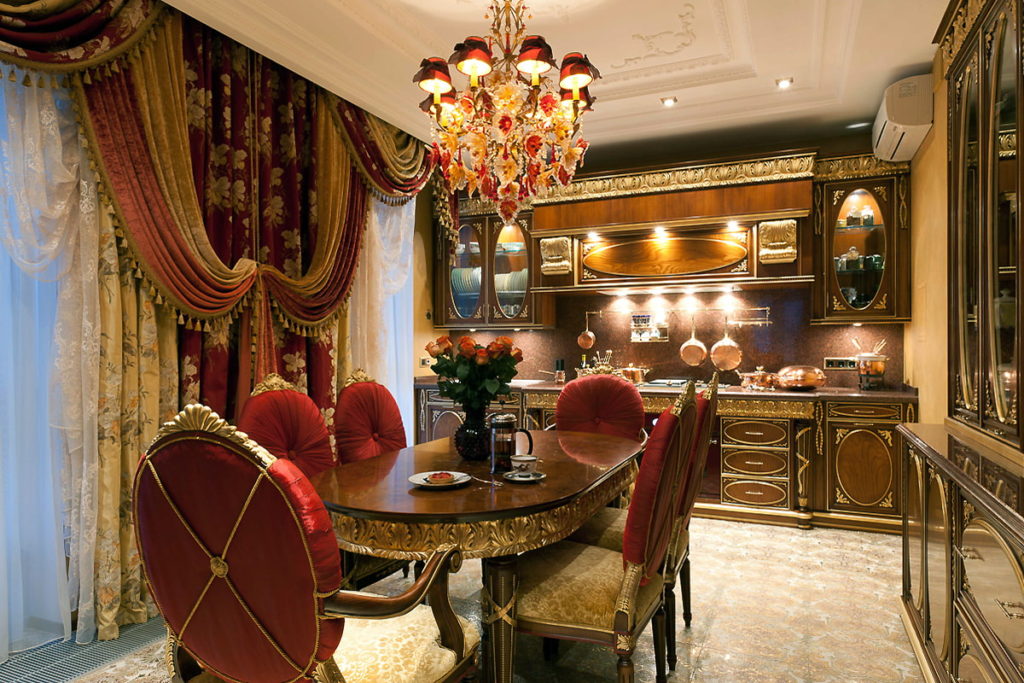
Classical interiors use sophisticated shapes and spectacular décor.
Soft lambrequins are often attached, like a regular tulle to simple loops. They have more variety of shapes, you can make different waves of ties or smooth bends.
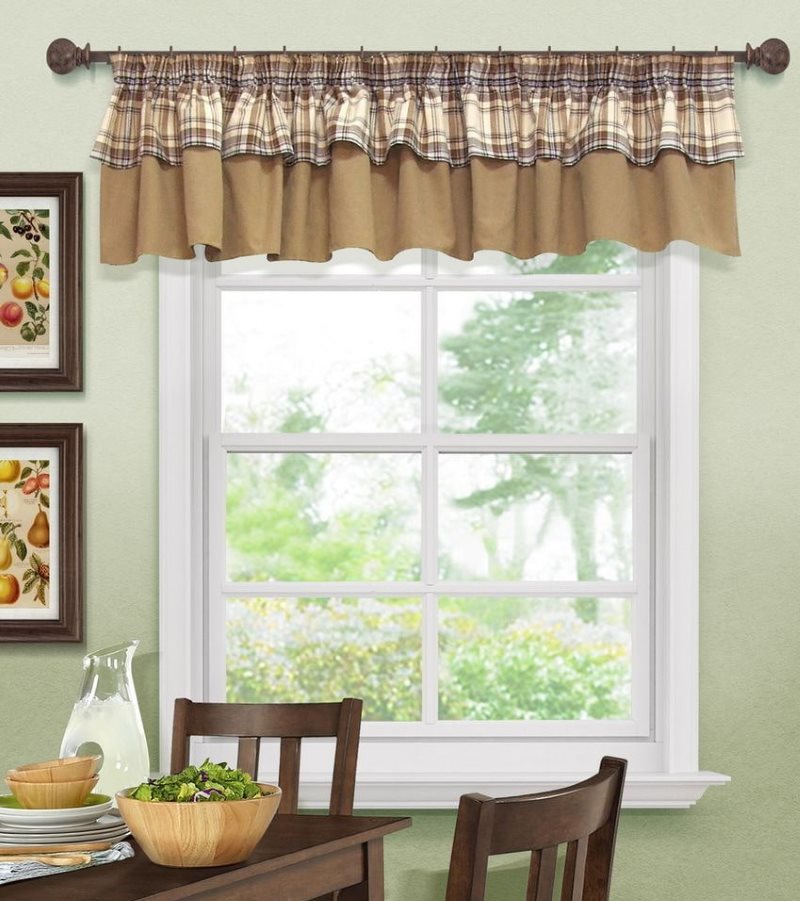
Soft lambrequin with drapery - a more decorative option, requiring more consumption of fabric
Any fabric is suitable for this type, the main thing is that the choice resonates with the tulle.
Combined combine both of the previous types and it is precisely such products that can most often be seen in the kitchen.
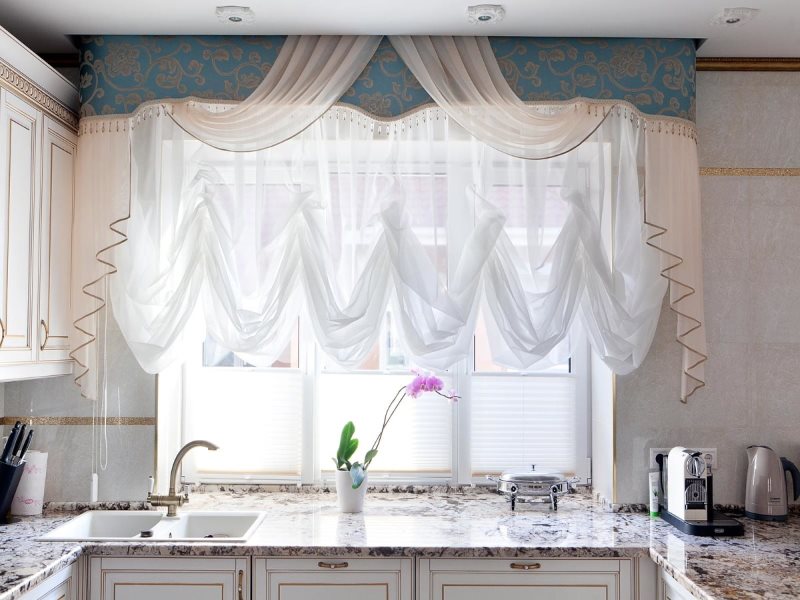
The combined lambrequin combines the rigidity of the base and the softness of the drapery
Openwork lambrequins - they are made to order by cutting material with a laser. This is a hard cloth that is mounted on a special adhesive tape. They are not whimsical in the care and installation.
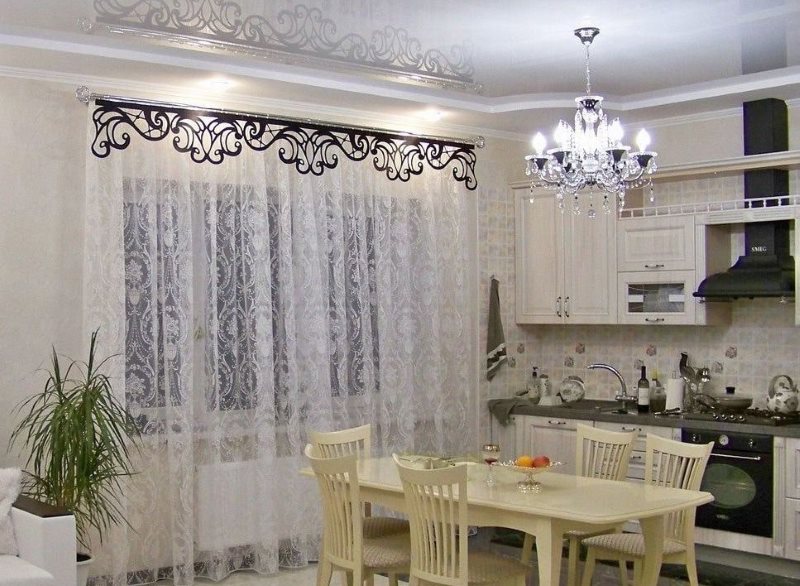
Openwork lambrequin fits the role of an exclusive complement to curtains and gives the interior of the kitchen personality
A puff is a one-piece fabric that is laced on a curtain tape. Hemispheres of different sizes are made of fabric and attached to the base with a lace. They do not block the lighting and transmit light as much as possible.
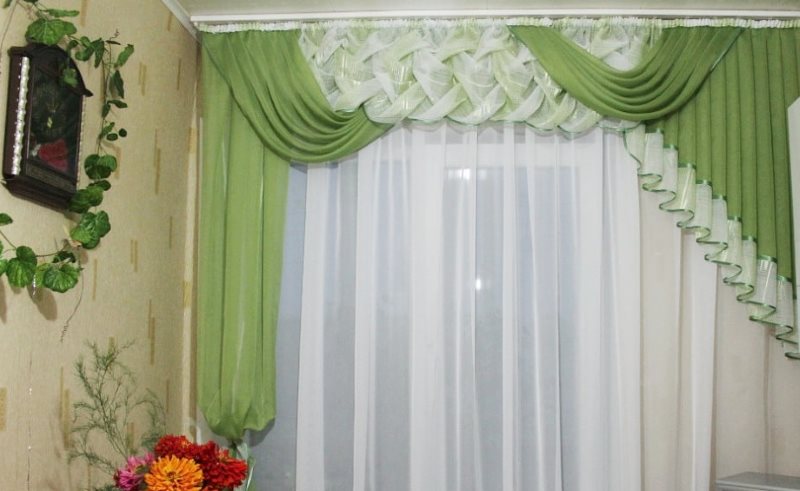
Buffs will bring sophistication and personality to the interior of any kitchen
When choosing tulle for a kitchen window opening, the following simple rules must be considered:
- In this room it is necessary to use natural lighting as efficiently as possible.
- The tulle should not be very long - this is due to the fact that a long tulle significantly complicates access to the window and is more difficult to pick up. The optimal length of the product is the length to the windowsill.
- In the kitchen, it is better not to use classic curtains, but to replace them with a Roman curtain.
- The more elaborate and richer the pelmet, the simpler the tulle should be.
- Lambrequin is usually made from the fabric of the same texture as on the curtain.
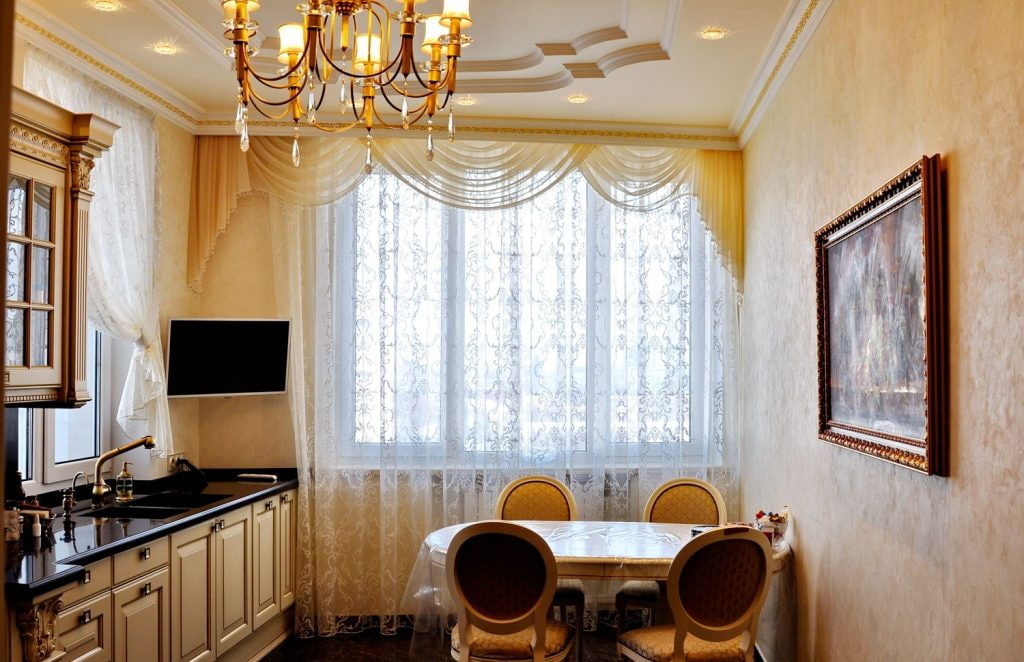
Lambrequin from the veil looks elegant and airy, creates a feeling of lightness
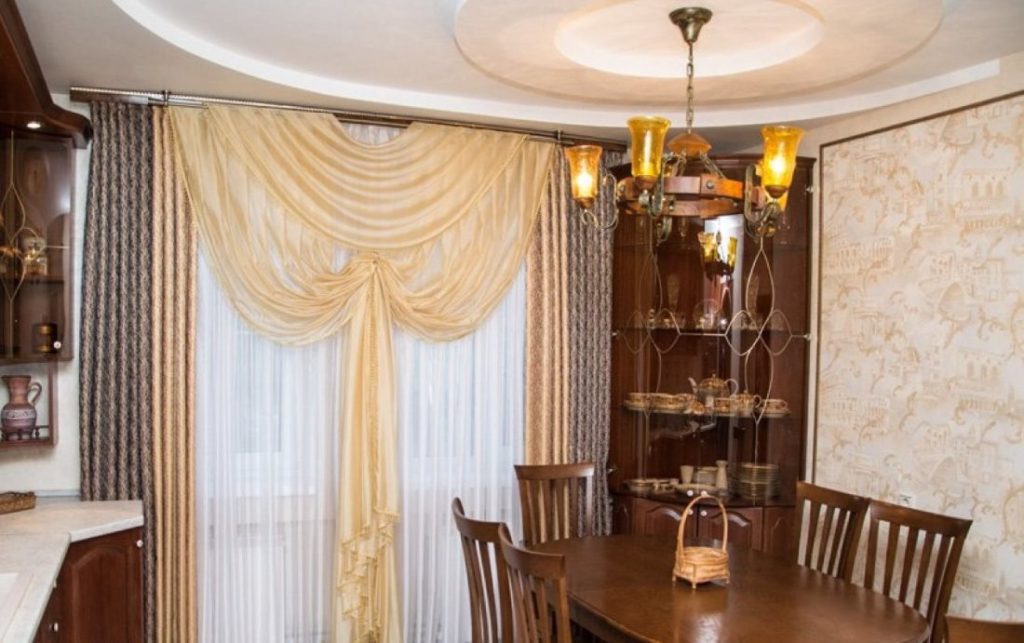
Organza Lambrequin - a stylish and modern solution
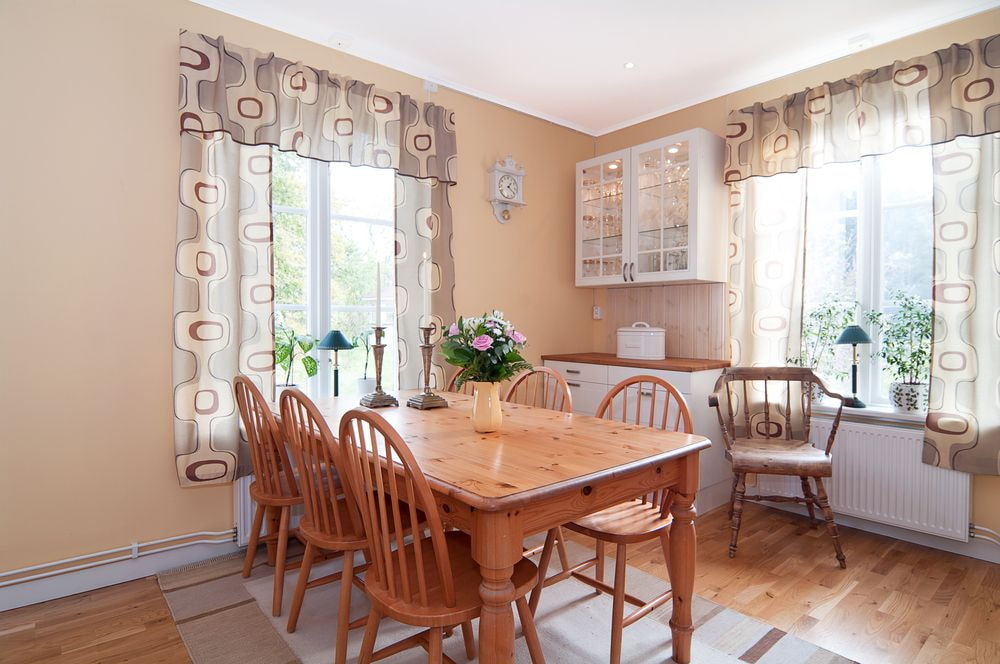
The graceful and elegant design of the window with a lambrequin comes out using chiffon
Important! The curtain will look more aesthetic than the Roman curtain, but it is not suitable for the kitchen. "Rimka" can be neatly hidden under the frame lambrequin or part of the entire structure.
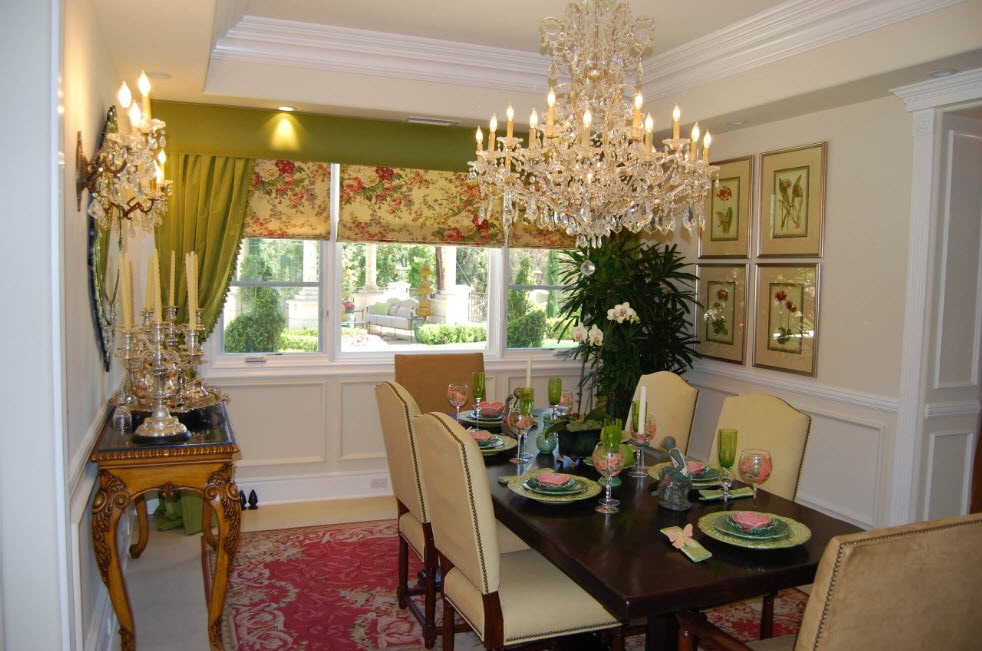
The photo shows an example of combining Roman curtains with a hard lambrequin
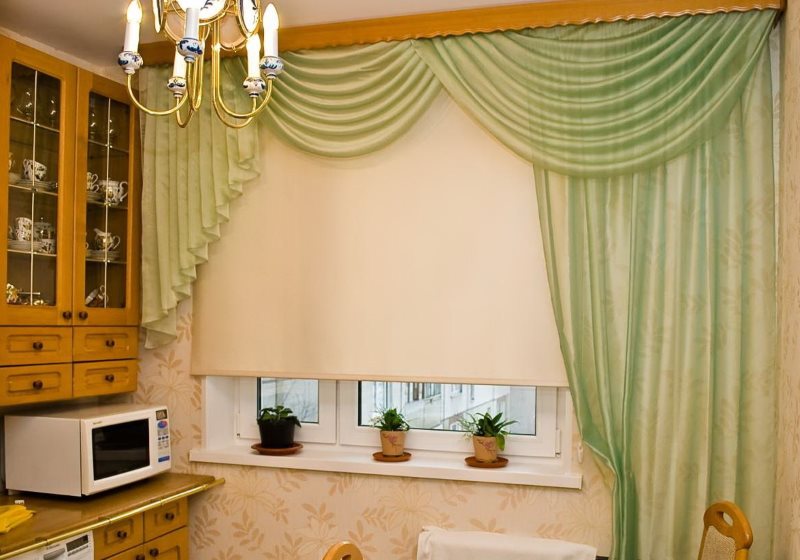
A no less practical solution would be to combine a pelmet with a roller blind
In 2019, these types of tulle will be fashionable:
- Organza Gradient.
- Plain organza.
- Grids with floral patterns - they complement any room.
- Macrame.
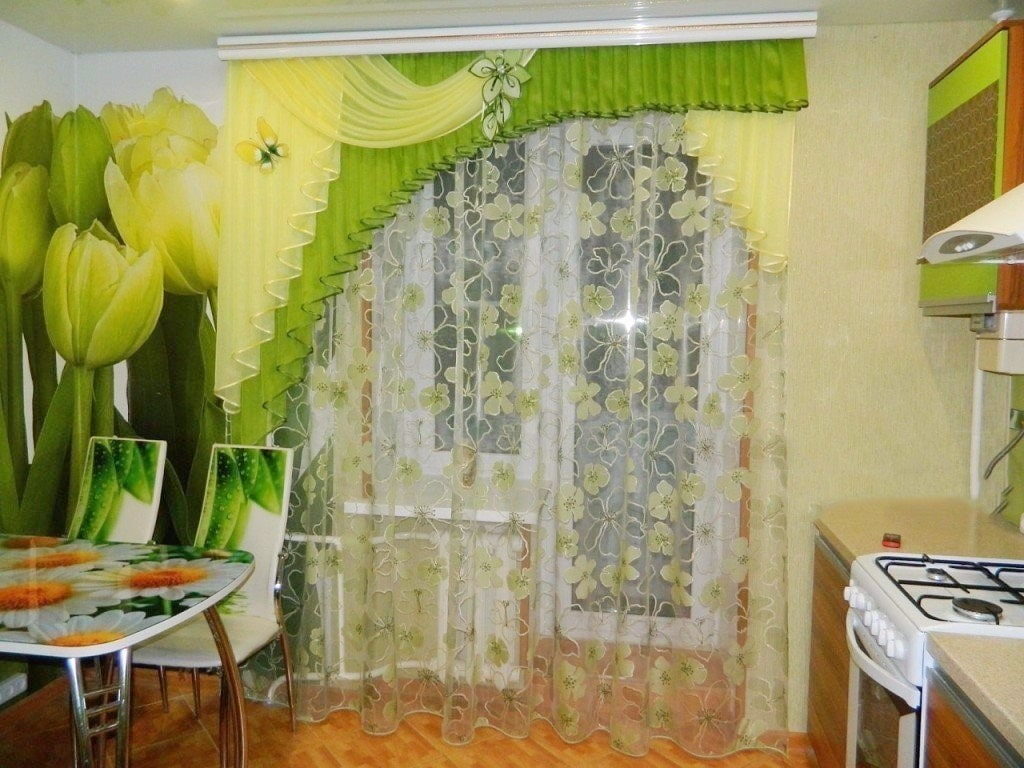
Asymmetric pelmet will bring variety to the room
Their popularity is due to the fact that they easily transmit light and fit into any interior style.
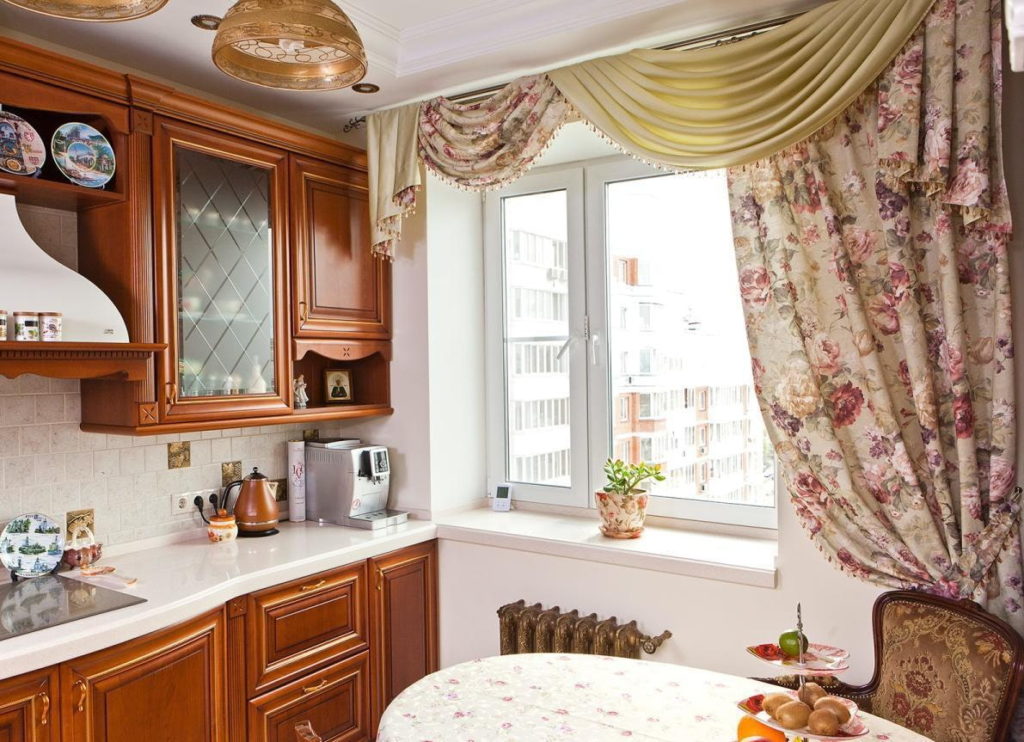
The window decorated with a lambrequin acquires an elegant and solemn appearance
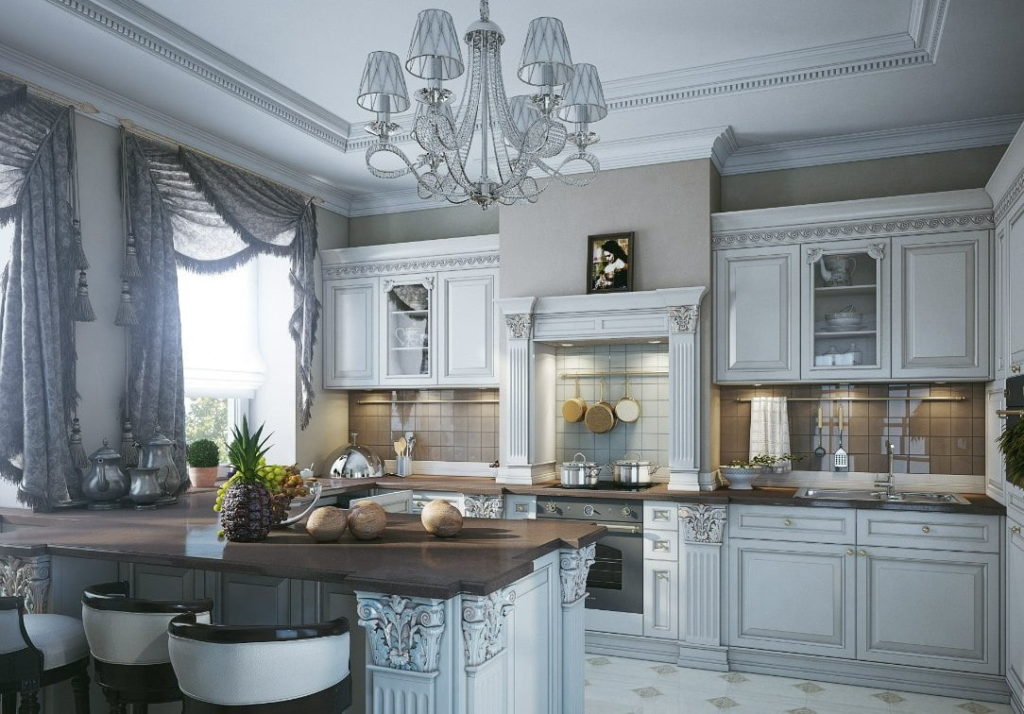
Swagi decorated with fringe look very elegant
Features of the choice of pelmet for the kitchen
When choosing a decoration for a kitchen window, several simple rules should be considered:
- Do not use this element with a ceiling height lower than 2.5 meters. This is due to the fact that the lambrequin visually reduces the height of the already low ceiling. If you can not do without it (a terrible curtain rod or an unproportional distance from the top of the window to the ceiling, and it is needed just for disguise), then it is better to choose products with a vertical pattern or make more folds, cascades.
- The standard height of the pelmet is 40 cm - the usual size of the wall, if it is smaller or larger, then we also take into account such nuances when developing the layout of the future product.
- The color is selected based on the colors of the interior, the lambrequin must necessarily contain the basic tones of the room.
- The kitchen should have a minimum number of folds and textile elements. This is due to the hygiene requirements for this product.
- The fabric should be pliable and fold easily.
- For the kitchen, the fabric should not be very dense, and should be saw and water-repellent. It should also burn badly.
- The size of the product should be no more than 1/6 of the entire height of the room.
- Correlate the size of the room and the lambrequin, do not make huge pompous products in small rooms and vice versa.
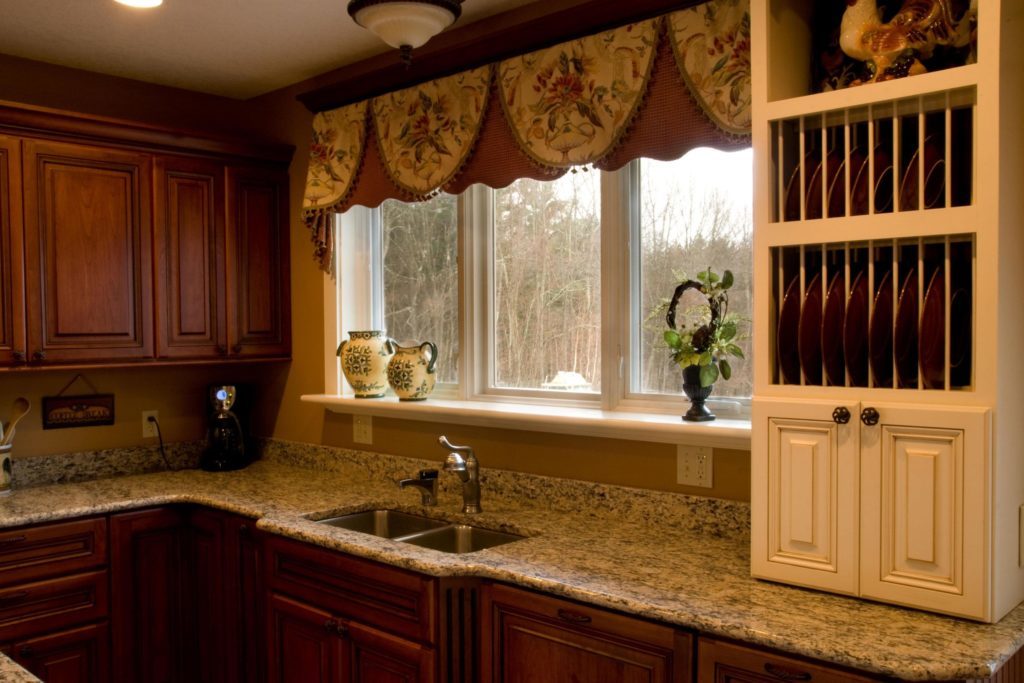
The smaller the size of the kitchen, the easier and more concise the pelmet and curtains should be
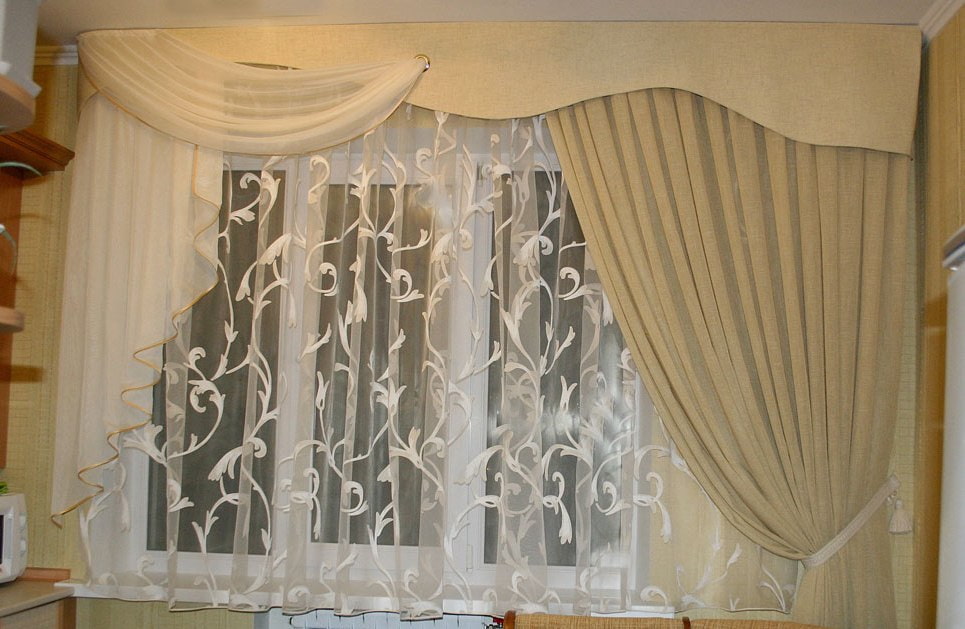
For a greater decorative effect, the lambrequin is complemented with a cascade - a draped fabric cloth located on the side of the curtains
The main elements of lambrequins and how they differ
When choosing a lambrequin design, you will 100% come across specific terminology for this product. It is described in more detail below.
- Swag is a strip of fabric draped in a semicircle. It is used in soft and combined forms.
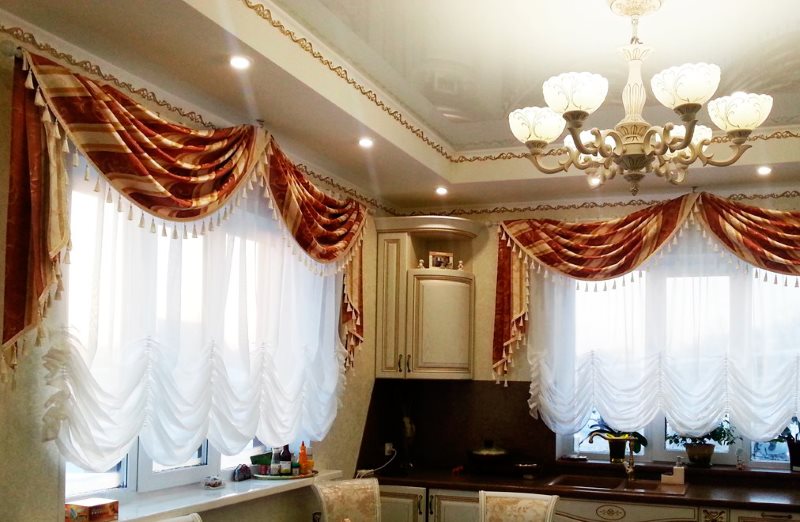
Swag can be performed symmetrical or not
- Jabot - the side of the pelmet with a beveled or stepped edge. Most often combined with swag and emphasizes the borders of the window.
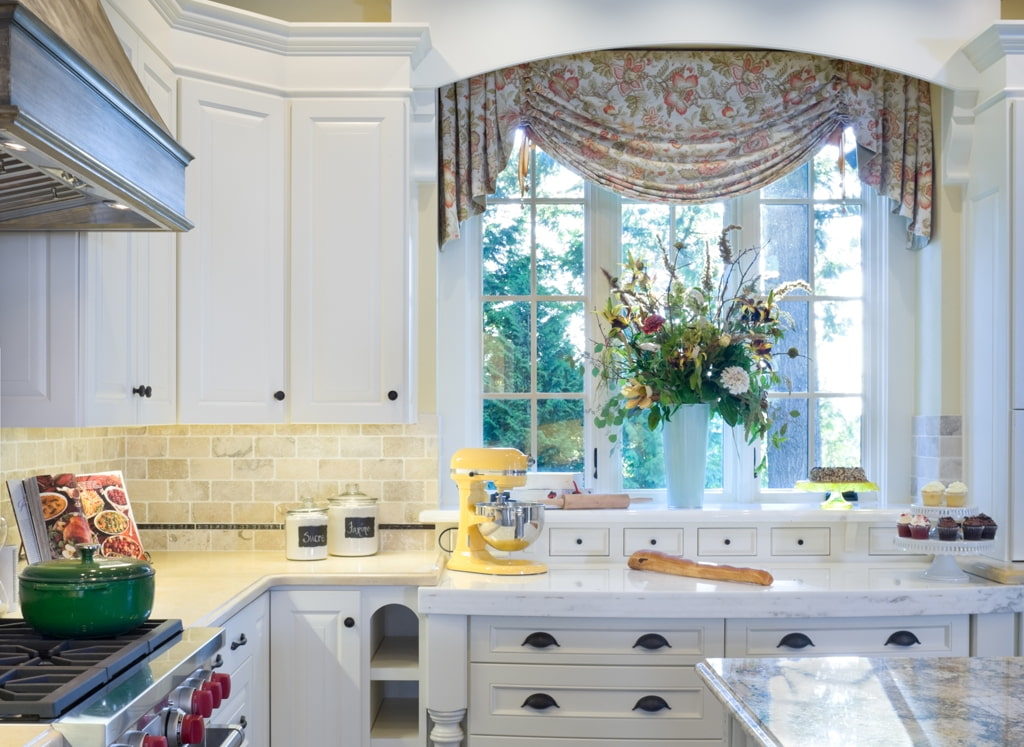
Thanks to the jabot, a soft or hard lambrequin gains vertical
- A tie is a separate narrow element that is laid in folds.
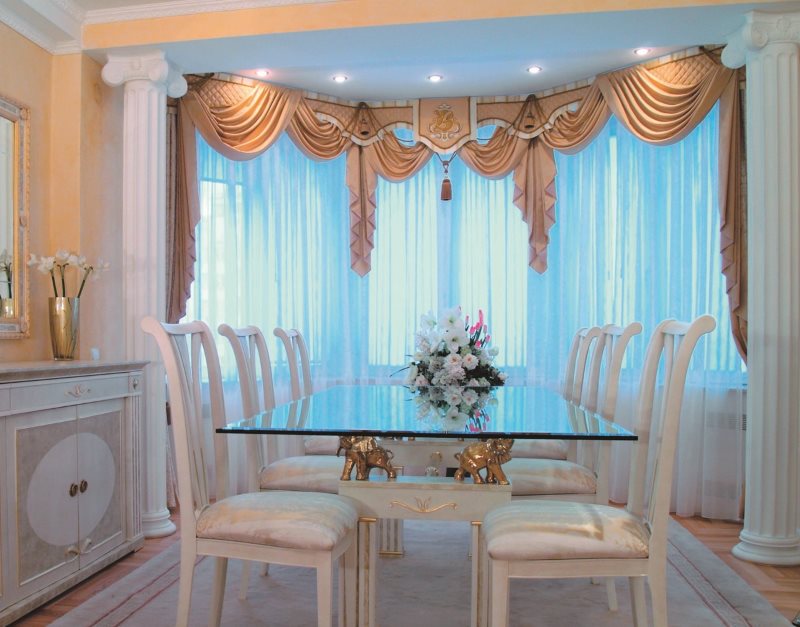
A tie is usually used when decorating wide windows.
All these elements can be combined with the frame base, this will make it possible to come to life straight lines and remove the excessive rigor of the product.
Features of caring for the finished product
Any product requires some care, for lambrequins it is as follows:
- Vacuum regularly - once a week it is necessary to vacuum the product so that it does not lose color and does not burden the air in the room. It will also be a good prevention against colds and allergies, which can develop due to dust. You need to vacuum every crease.
- Hard pelmets cannot be washed. This is due to the fact that the hard adhesive layer will stick off from moisture.They can only be wiped with a damp cloth or dry cleaned.
- Soft lambrequins are erased in special protective bags to avoid possible deformations.
- Drying of the product is carried out on a cornice or base. A wet product is hung in place and each crease and bend are straightened into the desired shape.
- It is possible to iron draperies only in the wet version and only if during washing there was a crease or deformation.
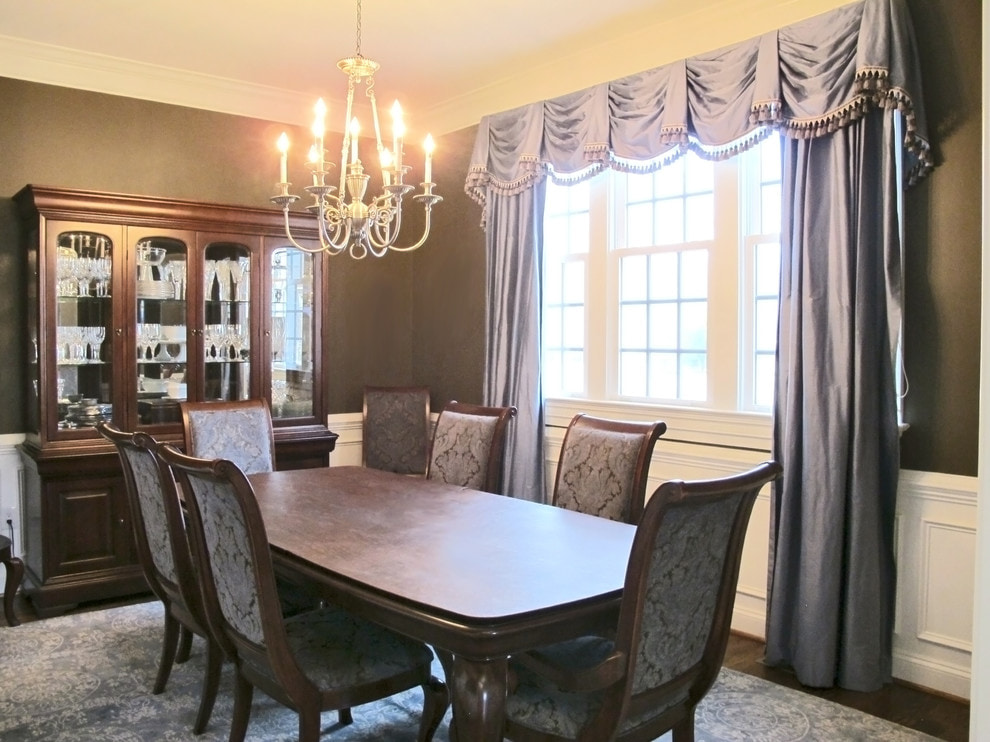
When choosing a lambrequin for the kitchen, you need to decide what lack of space you want to adjust
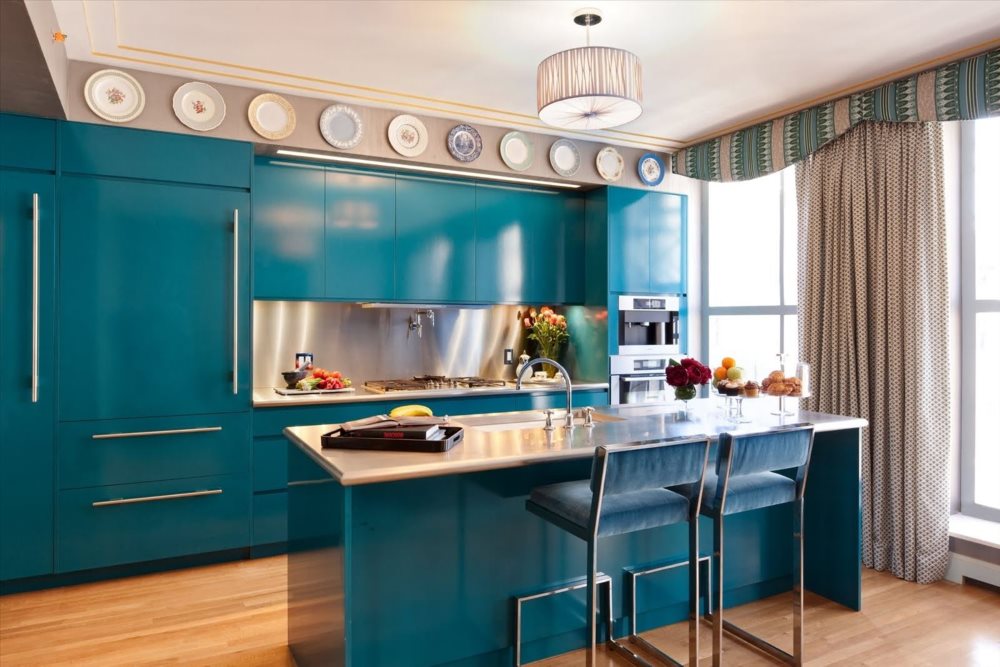
Geometric print pelmet will be appropriate in a contemporary style kitchen
Thus, when choosing a lambrequin for the kitchen, you need to focus on a number of parameters:
- Hygiene products.
- Access to the window.
- Skip daylight.
- The size of the room and the window.
The best option, suitable for all requirements, will be a simple frame or openwork lambrequin.
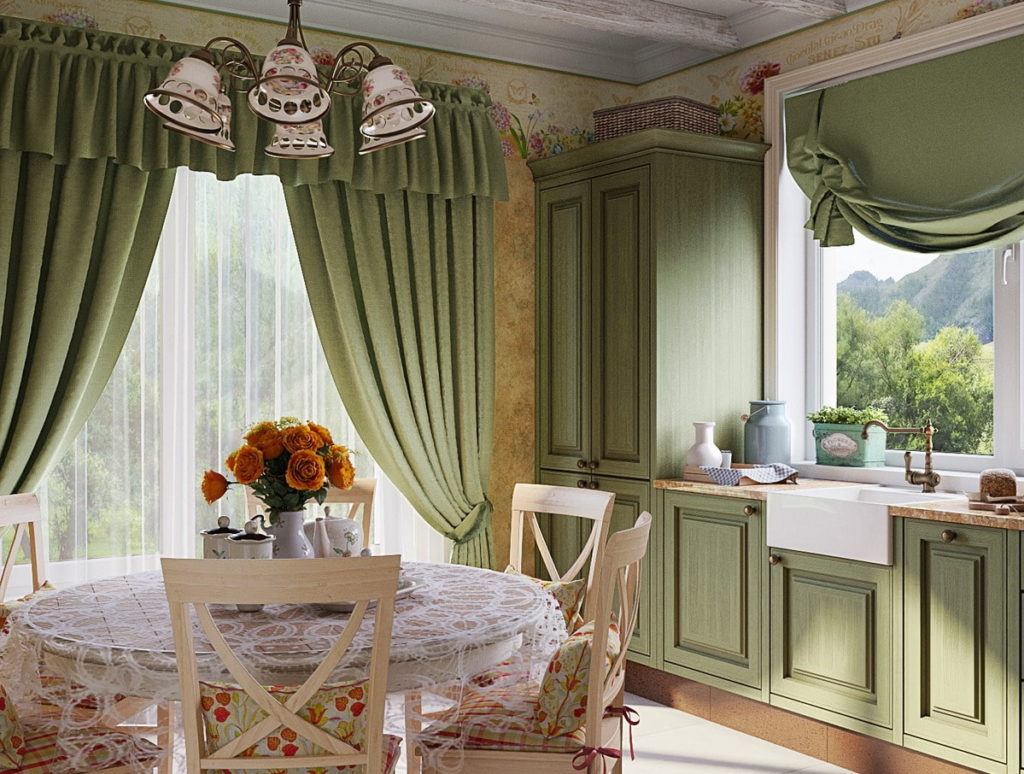
The simplest pelmet is made from a strip of fabric pulled together with braid. Such models are perfect for rustic interiors.
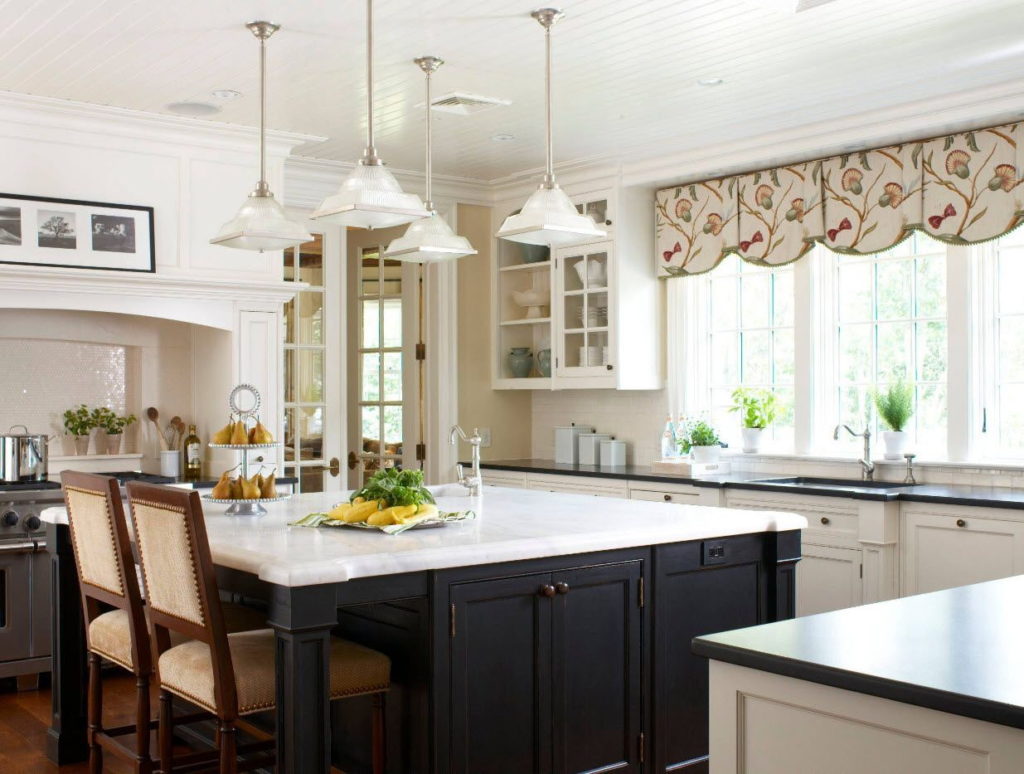
Short lambrequins often decorate the windows above the kitchen sinks
Video on how to sew a simple lambrequin with your own hands
